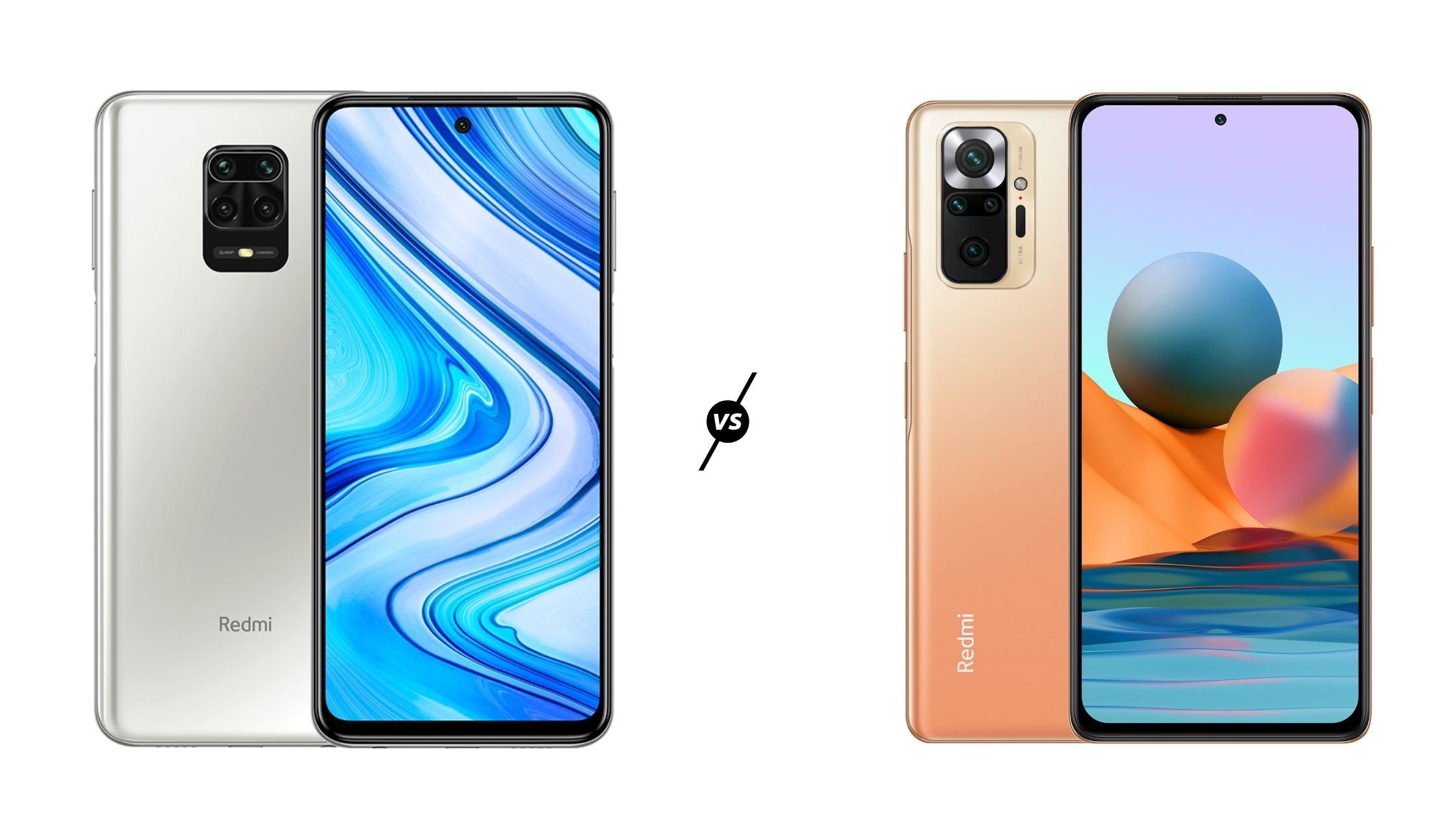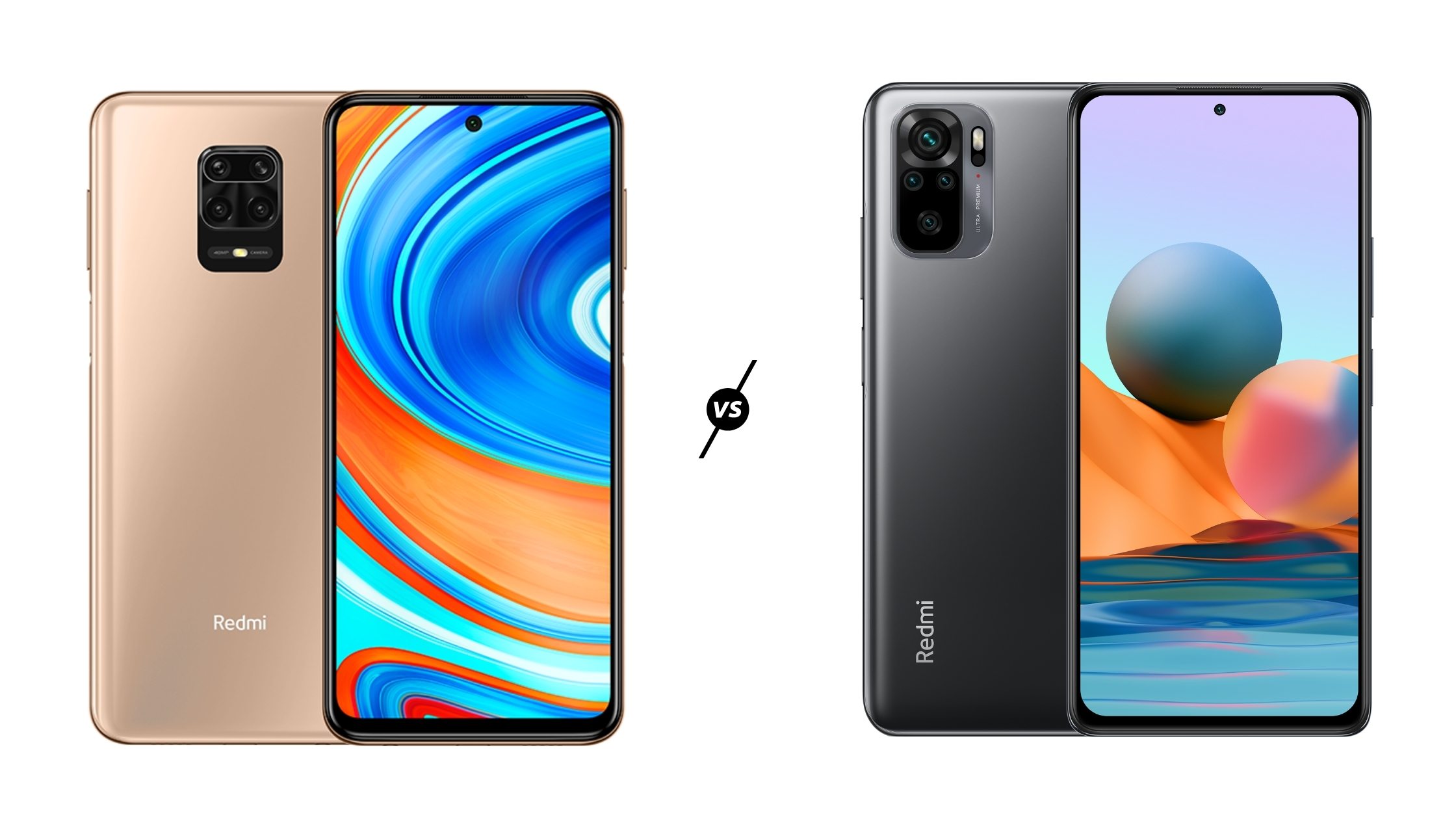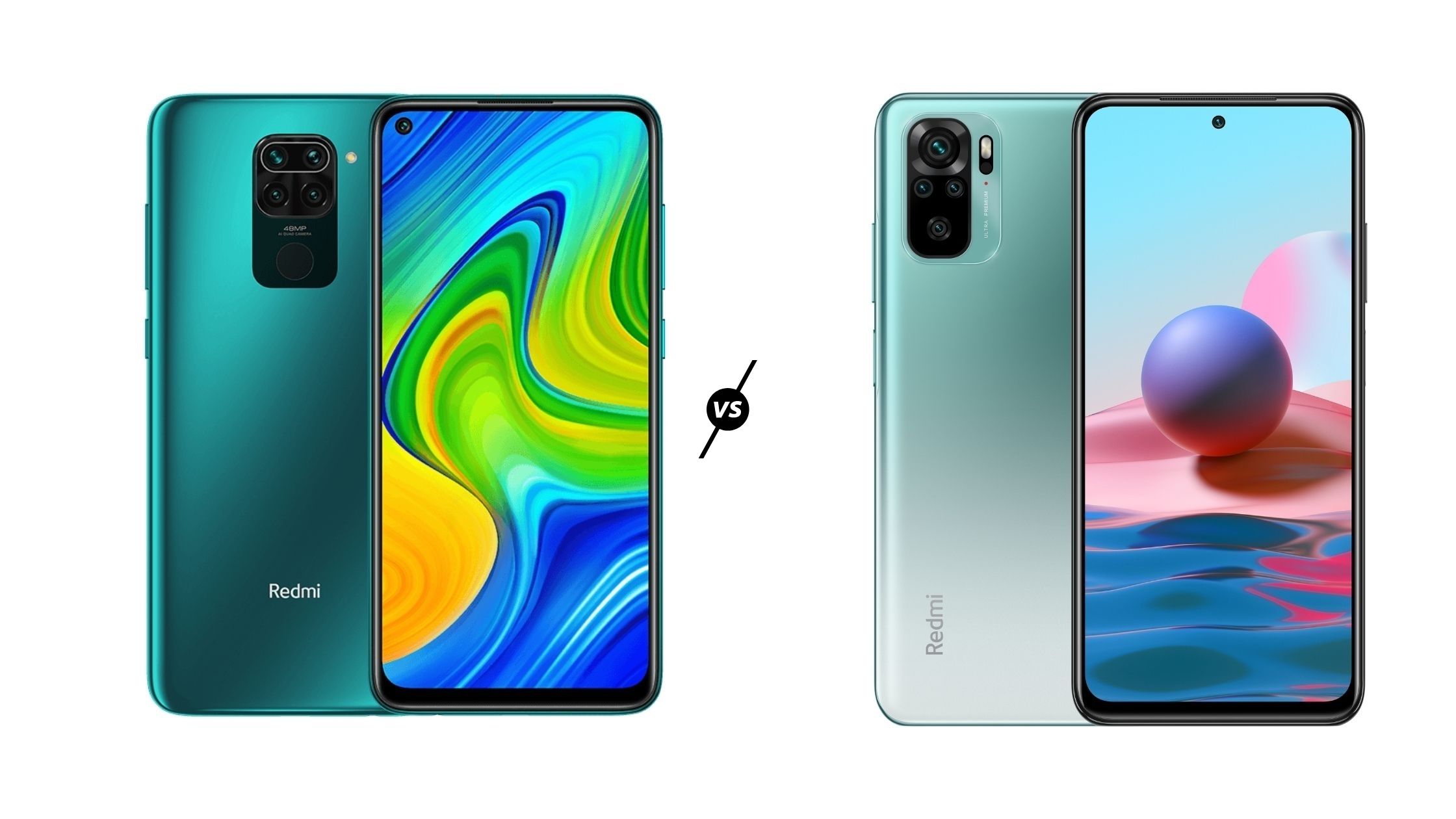The Redmi Note 10 series made its global debut in India today. The series consists of three new devices - the Redmi Note 10 Pro Max, Note 10 Pro, and vanilla Note 10. The Redmi Note 10 series brings some great upgrades compared to the Redmi Note 9 series.
The company has finally given what every tech-savvy Indians wanted and the new Redmi Note 10 series ticks all the boxes at least on the paper. Here in this article, we will take a look at what’s been upgraded and what’s not in detail as we compare specs of all three new Redmi Note 10 series phones with the three Redmi Note 9 series phones.
One thing that’s a common upgrade across all three phones includes - side-mounted fingerprint scanner with a customization option, Android 11 OS based on MIUI 12, AMOLED display, high refresh rate (except Note 10).
- Redmi Note 10, Note 10 Pro, Note 10 Pro Max launched with big upgrades
- Large-sized Redmi smart TVs confirmed to launch in India soon
Redmi Note 10 Pro Max vs Redmi Note 9 Pro Max

Let’s start off with what’s been upgraded over the last generation. The Redmi Note 10 Pro Max finally brings the crowd favourite Super AMOLED display and on top of it, you also get a 120Hz refresh rate. This is a big upgrade from the 60Hz LCD screen from the Redmi Note 9 Pro Max. The screen size and resolution remain the same with Full HD+ spanning at 6.67-inch.
The next big upgrade comes in terms of the optics, the Redmi Note 10 Pro Max brings the 108MP camera to sub Rs 20,000. This also makes it the cheapest phone with a 108MP camera. There is also a 5MP macro camera with 2x zoom, an 8MP ultra-wide-angle camera, and a 2MP depth sensor. The Redmi Note 9 Pro Max had a 64MP main camera, 8MP wide lens, 5MP macro, and 2MP depth. In terms of selfies, the Redmi Note 10 Pro Max comes with a 16MP shooter as opposed to the 32MP shooter on the last-gen.
AMOLED screen
120Hz refresh rate
108MP camera
Moving on to the performance, the Note 10 Pro Max is powered by Snapdragon 732G SoC which is an upgrade from the Snapdragon 720G. Both phones come with up to 8GB LPDDR4X RAM and up to 128GB of onboard storage. The Redmi Note 10 Pro Max comes with UFS 2.2 storage. The battery and charging speeds remain the same with a 5,020mAh unit and 33W Type-C fast charging support.
Lastly, in terms of design, the new Redmi Note 10 series comes with EVOL design with frosted glass on the back and Gorilla Glass protection on the front. The device is also 0.7mm thinner and 17 grams lighter compared to the last-gen.
| Specs | Note 10 Pro Max | Note 9 Pro Max |
|---|---|---|
| Display | 6.67” FHD+ Super AMOLED | 6.67” FHD+ LCD |
| Refresh rate | 120Hz | 60Hz |
| RAM | 6/8GB 8GB LPDDR4X | 6/8GB 8GB LPDDR4X |
| Storage | 64/128GB UFS 2.2 | 64/128GB UFS 2.1 |
| Rear camera | 108+8+5+2MP | 64+8+5+2MP |
| Front camera | 16MP | 32MP |
| Battery | 5,020mAh, 33W | 5,020mAh, 33W |
| Thickness | 8.1mm | 8.8mm |
| Weight | 192 grams | 209g |
| Starting price | Rs 18,999 | Rs16,499 |
Redmi Note 10 Pro vs Redmi Note 9 Pro

Just like the Max variant, the Redmi Note 10 Pro also gets a bump in the display segment. The 6.67-inch Full HD+ LCD screen from Redmi Note 9 Pro has been upgraded to a Super AMOLED panel with 120Hz. The 48MP Samsung GM2 quad-camera setup has been upgraded to a 64MP Samsung GM3 quad camera setup.
AMOLED screen
120Hz refresh rate
The device is powered by Snapdragon 732G chipset, a jump from Snapdragon 720G. The Redmi Note 10 Pro also gets an 8GB RAM variant which was not the case with Note 9 Pro. The storage however is still limited to 128GB. The design as said earlier has been updated with a new EVOL device which also makes the Redmi Note 10 Pro 0.7mm thinner and lighter by 17 grams.
Things that are the same across both phones include a 5,020mAh battery, Type-C 33W fast charging, Gorilla Glass protection on the front, IR Blaster, side fingerprint scanner, and 16MP selfie camera.
| Specs | Note 10 Pro | Note 9 Pro |
|---|---|---|
| Display | 6.67” FHD+ Super AMOLED | 6.67” FHD+ LCD |
| Refresh rate | 120Hz | 60Hz |
| RAM | 6/8GB 8GB LPDDR4X | 6GB 8GB LPDDR4X |
| Storage | 64/128GB UFS 2.2 | 64/128GB UFS 2.1 |
| Rear camera | 64+8+5+2MP | 48+8+5+2MP |
| Front camera | 16MP | 16MP |
| Battery | 5,020mAh, 33W | 5,020mAh, 30W(33W in-box) |
| Thickness | 8.1mm | 8.8mm |
| Weight | 192 grams | 209g |
| Starting price | Rs 15,999 | Rs 12,999 |
Redmi Note 10 vs Redmi Note 9

The vanilla Redmi Note 10 is the most affordable of the three. The Redmi Note 10 comes with a slightly smaller screen compared to the last-gen. While the Redmi Note 9 features a 6.58-inch Full HD+ LCD panel, the new Redmi Note 10 comes with a 6.43-inch Super AMOLED display - refresh rate is 60Hz on both phones. The display is 2x brighter than the last-gen. In terms of performance, Redmi has moved from MediaTek Helio G85 to Snapdragon 678 processor on the Redmi Note 10 which is also India’s first phone with the new chipset.
AMOLED screen
33W fast charging
The new design has also made the device thinner and lighter but, on the protection front, the Redmi Note 10 comes with Gorilla Glass 3 while the Redmi Note 9 sports 5th gen protection. In terms of camera performance, the 48MP Samsung GM1 quad-camera setup has been updated to the Sony IMX582 48MP quad-camera. The selfie shooters remain the same with a 13MP sensor.
The battery capacity is 5,000mAh, a mere 20mAh less than the Redmi Note 9. The major upgrade here comes in terms of the charging speeds - the Redmi Note 10 comes with a 33W fast charger in the box as compared to the 18W charger.
| Specs | Redmi Note 10 | Redmi Note 9 |
|---|---|---|
| Display | 6.43” FHD+ Super AMOLED | 6.58” FHD+ LCD |
| Refresh rate | 60Hz | 60Hz |
| RAM | 6GB LPDDR4X | 6GB LPDDR4X |
| Storage | 64/128GB UFS 2.2 | 64/128GB UFS 2.1 |
| Rear camera | 48+8+2+2MP | 48+8+2+2MP |
| Front camera | 13MP | 13MP |
| Battery | 5,000mAh, 33W | 5,020mAh, 18W(22.5 in-box) |
| Thickness | 8.3mm | 8.95mm |
| Weight | 178.8 grams | 1999g |
| Starting price | Rs 11,999 | Rs 10,999 |
- Best phones under Rs 20,000 in India
- Best phones under Rs 25,000 in India
- Upcoming smartphone launches in India
Want to know about the latest happenings in tech?
from TechRadar - All the latest technology news https://ift.tt/3e6lSaL


No comments:
Post a Comment